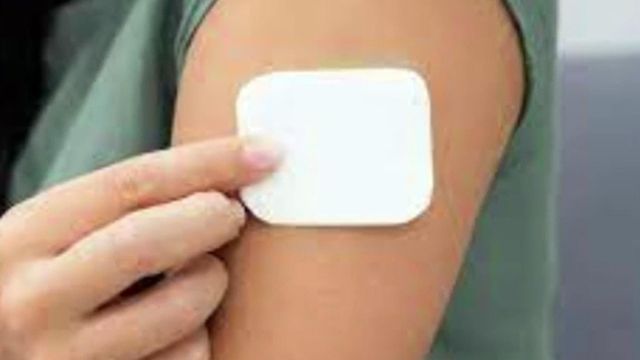Don't like needles? Researchers working on vaccine patches, treatment pills
For people who can't stand needles, the thought of getting a shot makes them squeamish. That can make them hesitant to get the right prevention or treatment for infections like the coronavirus infection. But researchers are working to make vaccines and treatments for COVID-19 and other illnesses completely jab-free.
Posted — UpdatedBut researchers are working to make vaccines and treatments for COVID-19 and other illnesses completely jab-free.
DeSimone said the stick-on patch, which is made by 3-D printing, has tiny needles that feel like Velcro. The needles are coated in dry vaccine, and they dissolve into the skin over two hours, allowing the vaccine to target immune cells in the skin.
"In our bodies, we have way more of those immune cells in our skin than we do in the muscle. It's because, when we cut ourselves, it's the first line of defense," he said. "We see a 50-fold increase in antibody response for certain types of normal injections and 10-fold for others."
Because the vaccine is dry and not liquid, it also wouldn't require super-low temperatures for storage, and people could vaccinate themselves with the patch.
"Kids are screaming, [and] there's a lot of anxiety." he said of getting shots. "People getting anxious is not healthy in and of itself, right? To lower the whole anxiety level, I think, can be really valuable."
UNC-Chapel Hill and Duke University researchers also are among those developing an oral treatment for COVID-19.
Someone who tests positive for coronavirus could begin taking a daily pill to stop the illness early in its course and possibly prevent symptoms.
"It's a game-changer because it is something easy to administer. It's easy to store, it's easy to distribute and relatively easy to produce," said J. Victor Garcia-Martinez, an infectious disease expert at UNC-Chapel Hill who's involved in the research.
Between the pill and the patch, scientists said they hope to make COVID-19 prevention painless and revolutionize how people think of vaccines.
Related Topics
• Credits
Copyright 2024 by Capitol Broadcasting Company. All rights reserved. This material may not be published, broadcast, rewritten or redistributed.






